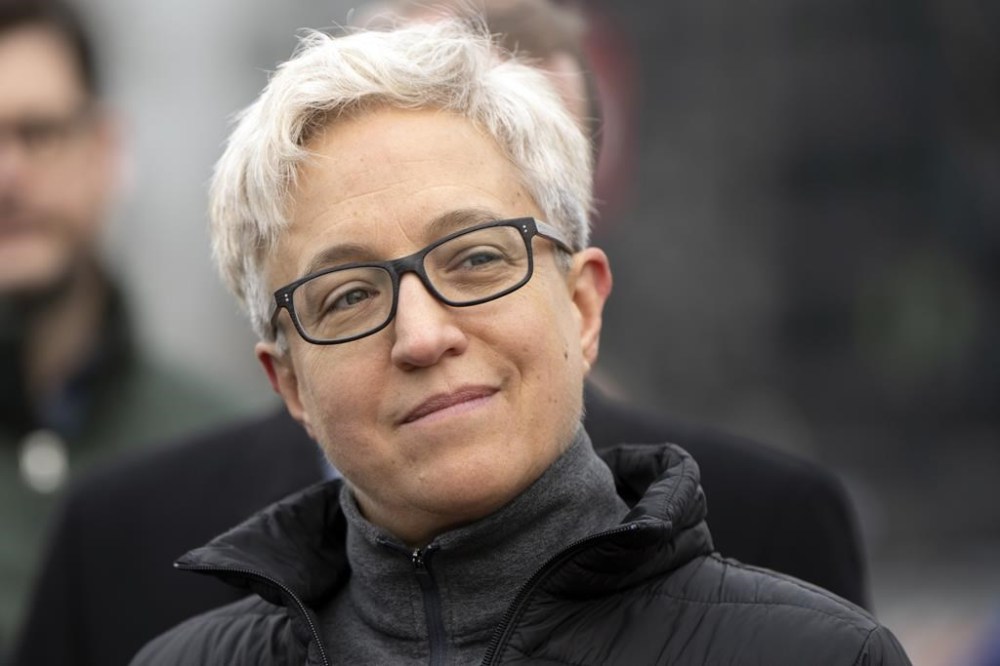Oregon governor signs a bill recriminalizing drug possession into law
Advertisement
Read this article for free:
or
Already have an account? Log in here »
To continue reading, please subscribe:
Monthly Digital Subscription
$0 for the first 4 weeks*
- Enjoy unlimited reading on winnipegfreepress.com
- Read the E-Edition, our digital replica newspaper
- Access News Break, our award-winning app
- Play interactive puzzles
*No charge for 4 weeks then price increases to the regular rate of $19.00 plus GST every four weeks. Offer available to new and qualified returning subscribers only. Cancel any time.
Monthly Digital Subscription
$4.75/week*
- Enjoy unlimited reading on winnipegfreepress.com
- Read the E-Edition, our digital replica newspaper
- Access News Break, our award-winning app
- Play interactive puzzles
*Billed as $19 plus GST every four weeks. Cancel any time.
To continue reading, please subscribe:
Add Free Press access to your Brandon Sun subscription for only an additional
$1 for the first 4 weeks*
*Your next subscription payment will increase by $1.00 and you will be charged $16.99 plus GST for four weeks. After four weeks, your payment will increase to $23.99 plus GST every four weeks.
Read unlimited articles for free today:
or
Already have an account? Log in here »
Hey there, time traveller!
This article was published 01/04/2024 (613 days ago), so information in it may no longer be current.
SALEM, Ore. (AP) — Oregon’s Democratic Gov. Tina Kotek on Monday signed into law a bill that recriminalizes the possession of small amounts of drugs, ending a first-in-the-nation experiment with decriminalization that was hobbled by implementation issues.
The new law rolls back a 2020 voter-approved measure by making so-called personal use possession a misdemeanor punishable by up to six months in jail. It also establishes ways for treatment to be offered as an alternative to criminal penalties by encouraging law enforcement agencies to create deflection programs that would divert people to addiction and mental health services instead of the criminal justice system.
In a signing letter, Kotek said the law’s success will depend on “deep coordination” between courts, police, prosecutors, defense attorneys and local mental health providers, describing them as “necessary partners to achieve the vision for this legislation.”

Measure 110, approved by voters with 58% support in 2020, made the personal use possession of illicit drugs such as heroin, cocaine and methamphetamine only punishable by a ticket and a maximum fine of $100. Supporters said treatment is more effective than jail in helping people overcome addiction and that the decadeslong approach of arresting people for possessing and using drugs hasn’t worked.
The law directed hundreds of millions of dollars of the state’s cannabis tax revenue toward addiction services. But the money was slow to get out the door and health authorities, already grappling with the COVID-19 pandemic, struggled to stand up the new treatment system, state auditors found. At the same time, the fentanyl crisis began to spark an increase in deadly overdoses.
Those pressures prompted Oregon Democrats to shift their stance on decriminalization policy in recent months.
Some who historically supported the measure voted for the new law during this year’s short legislative session. While other Democratic lawmakers opposed the measure, concerned it would result in more arrests and exacerbate social inequities, it ultimately passed the Democrat-controlled Legislature last month.
GOP leaders had long sought to overhaul Measure 110. After Kotek’s signing, House Minority Leader Jeff Helfrich said the law illustrated how Republicans “stood united and forced Democrats” to restore criminal penalties.
The changes take effect Sept. 1.


